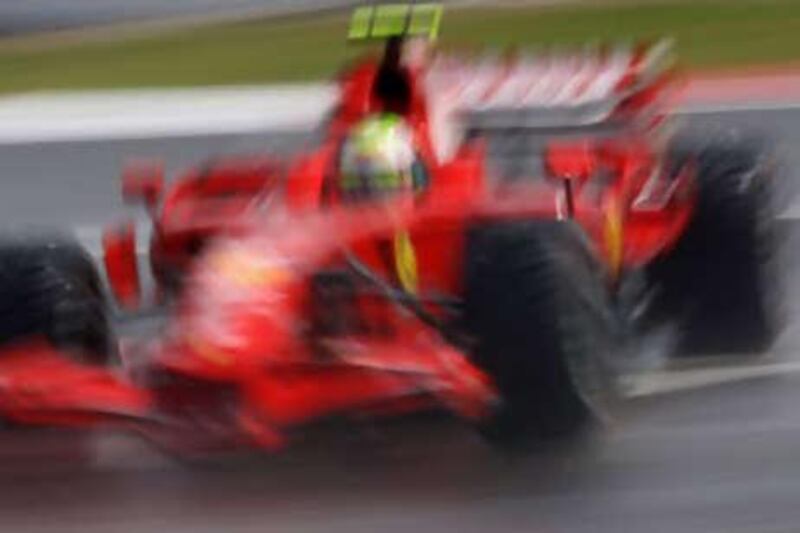ABU DHABI // Traditional elements of Formula 1 will make way for versions more in keeping with local sensibilities when the city's first Grand Prix is held next year. The top three drivers of every Grand Prix are usually showered in litres of champagne, with crowds often getting as soaked as the drivers. However, the tradition may have to be shelved when the sport calls at Abu Dhabi for the first time on Nov 15 2009, to avoid causing offence.
Similarly, to make sure the event is held in keeping with local standards of decency, scantily clad pit girls may not be allowed, although organisers said they had yet to decide on specifics. It is, however, expected that Abu Dhabi will follow the same respectful code as the Bahrain Grand Prix, a fixture of the F1 circuit since 2004. Organisers say the event must have a "distinctly Arabian flavour".
A spokesman for the Etihad Airways Abu Dhabi Grand Prix said the event would be tailored to meet the cultural sensitivities of the area, similar to the taster F1 Festival event held in Abu Dhabi last year. "The intention with the Abu Dhabi Grand Prix has always been to create something that is a distinctly UAE event and something that all Emirati people can be proud of," she said. "Whilst there are certain elements of an F1 event that remain unchanged in each location, there are many others that allow us the freedom to bring our own unique sense of place and culture to the event.
"For those that experienced the F1 Festival last year, it was obvious that while it was F1, it also had a distinctly Arabian flavour that nationals and expat residents could be proud of. "In line with this, while specifics such as [champagne and pit girls] have not been worked out, anything we do at the Abu Dhabi Grand Prix will be a clear reflection of the UAE's unique heritage and culture." Before Bahrain held its first Grand Prix four years ago, there was concern over how the country would incorporate some of the staples of the F1 circuit. At the time, the kingdom's deputy speaker, Adel al Moawada, said: "Shaking the champagne and spreading it on people, this is something I don't think people will accept. The organisers know how to run this event without contradicting the culture of the place they are in."
Organisers of the Bahrain Grand Prix eventually reached a compromise by allowing drivers to spray ward, a Bahraini speciality made of carbonated rose water, pomegranate juice and trinj, a bitter orange fruit. Pit girls in Bahrain dress more modestly than at Grand Prix events elsewhere, and are occasionally seen in Arab dress. F1 has adapted well to the cultural and religious sensitivities of the races' host countries, with the champagne celebration often being dropped.
In the 1980s, the Williams team drivers including Alan Jones, Keke Rosberg and Carlos Reutemann did not celebrate top-three finishes with champagne, as their team was sponsored by Saudia, then name of the national airline of Saudi Arabia. The drivers instead celebrated by spraying orange juice or sparkling water. In the mid-1990s, when Damon Hill and Michael Schumacher dominated the sport, no champagne was allowed on the podium at the French Grand Prix at Magny Cours because of a ban in France on advertising alcohol.
rhughes@thenational.ae






